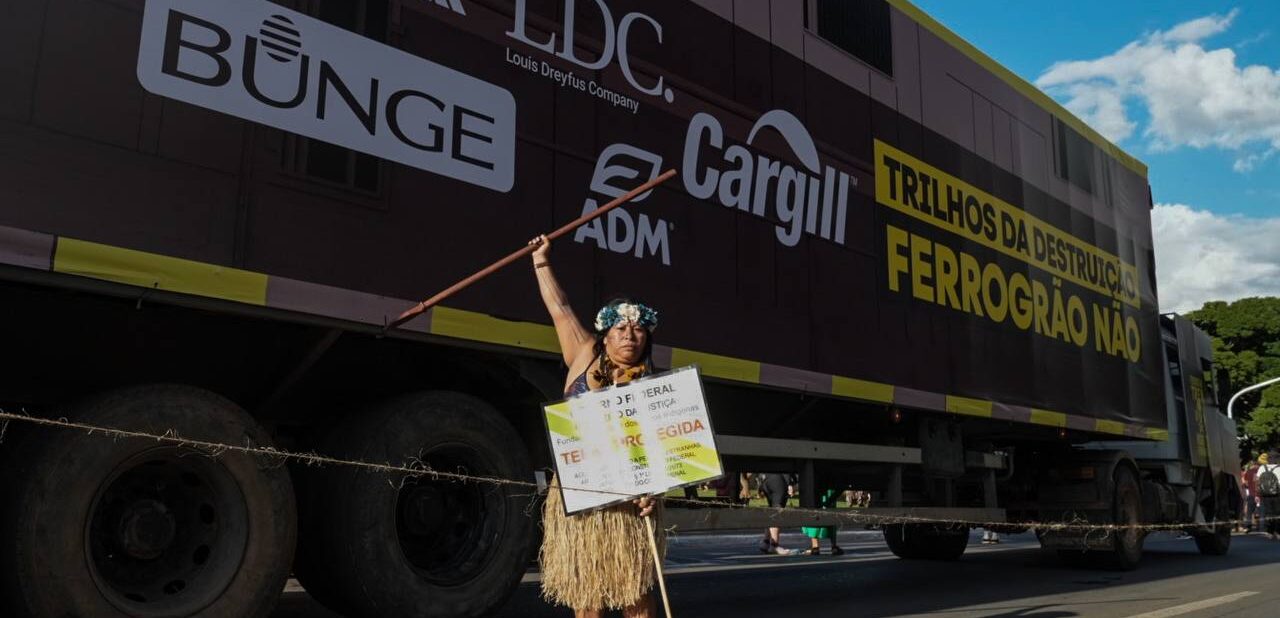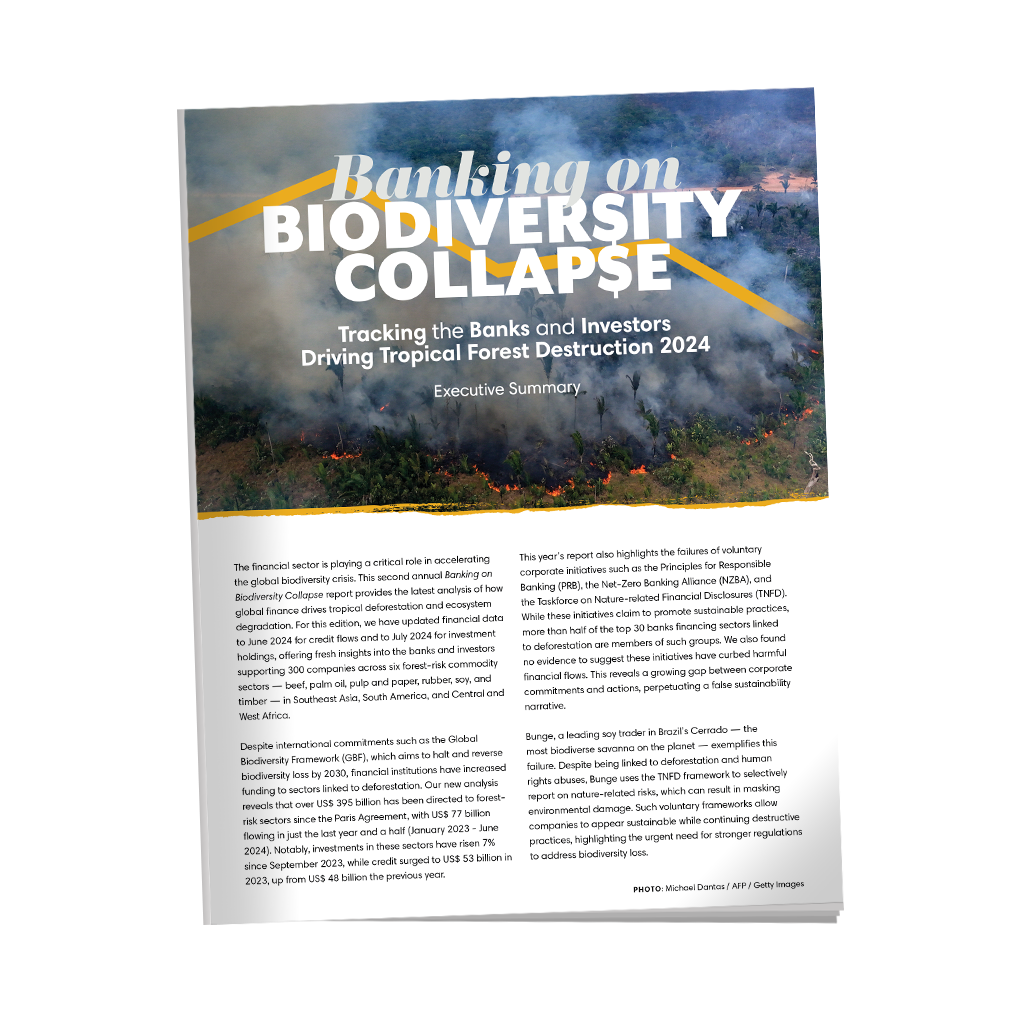
In 1987, RAN successfully pressured Burger King to cancel $35 million in cattle contracts that were turning rainforests into grazing land. Since that historic first win, we have continued to expose the corporations making huge profits from destroying the Amazon region.
Recently we partnered with international and Brazilian NGOs and local communities to expose America’s largest private company, the agribusiness behemoth Cargill, for their impact in the region. Cargill has previous experience with RAN. In 2007, RAN launched a campaign calling on US agribusiness giants, including Cargill, to clean up their dirty palm oil supply chains. RAN kept pressure on Cargill until the company committed to take responsibility for its Conflict Palm Oil problem in 2014. Shortly after, Cargill issued a sweeping zero deforestation commitment that extended this pledge to all its commodities across its global operations. While the policy was groundbreaking, Cargill has unsurprisingly failed to deliver on this commitment.
The Negative Impacts of Soy
More recently, Cargill committed to reduce its emissions by 10% by 2025 and pledged to cut greenhouse gas emissions from its US beef supply by 30% over the next decade. Yet, Cargill is also expanding operations further into the Brazilian Amazon, a critical region in the fight against climate change. Cargill and other major soy traders are pushing for the development of the Ferrogrão, a 933 kilometer railway to enable soy produced in the state of Mato Grosso to be exported through the Amazon. Soy export ports already have created massive negative impacts on Indigenous and traditional communities — and those impacts will be exacerbated if the Ferrogrão project goes ahead.
To tackle this problem, RAN is going after Cargill’s financiers. This year, we met with Citi and Bank of America to expose the multiple problems inherent in Cargill’s port development project. Additionally, we highlighted Cargill as a key offender in our report “Banking on Biodiversity Collapse.”
Supporting Local Partners
While we worked the corporate engagement angle, our Brazilian partners, Federação de Órgãos para Assistência Social e Educacional (FASE) and Movimento pela Soberania Popular na Mineração (MAM), are supporting local communities in their resistance against Cargill’s port project. These partners exposed a decades-long history of deforestation and human rights violations for soy production in the Amazon and elevated the urgent call from communities to protect the Amazon. This included developing a youth-led radio program to educate communities around the plans for the Cargill port, coordinating communications workshops in the Quilombola Territories, Laranjituba, and África, in Abaetetuba, aligning CSOs on demands, and holding public demonstrations against the Ferrogrão project. Partners also provided technical inputs to the Ministry of Transport on the inviability of the Ferrogrão and even filed a lawsuit about the communities’ rights to Free, Prior, and Informed Consent on decisions about the Ferrogrão.
Even though the fight is far from over, we know our tactics are working. Communities have been successful in slowing down Cargill’s expansion plans and a recent lawsuit accusing Cargill of violating the rights of the impacted communities has resulted in a suspension of their operating license. Our efforts are a critical part of an international movement, bringing people and communities together to stop Cargill’s port project, protect the Amazon, and defend Indigenous rights.

